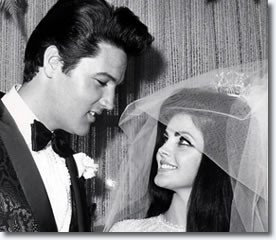“Guitar Man” is more than just a song in Elvis Presley’s vast catalog; it’s a vibrant narrative brought to life by the King of Rock and Roll. Originally penned and recorded by Jerry Reed, Elvis’s rendition injects a unique energy, transforming it into a signature track that resonates with fans even today. Let’s delve into the story behind “Guitar Man”, explore its captivating lyrics, and understand its place within Elvis’s iconic career.
The Genesis of “Guitar Man”: Jerry Reed’s Tale
Before Elvis made “Guitar Man” his own, it was the brainchild of the immensely talented Jerry Reed. A country music virtuoso known for his distinctive guitar style and storytelling prowess, Reed recounted the song’s origins in an interview. He received a call from Felton Jarvis, Elvis’s producer, who was struggling to capture the right sound for “Guitar Man” in the studio. Elvis specifically wanted it to mirror the feel of Reed’s original recording.
Reed explained to the Tennessean newspaper, “I was out on the Cumberland River fishing, and I got a call from Felton Jarvis. He said, ‘Elvis is down here. We’ve been trying to cut ‘Guitar Man’ all day long. He wants it to sound like it sounded on your album’. I finally told him, ‘Well, if you want it to sound like that, you’re going have to get me in there to play guitar, because these guys [you’re using in the studio] are straight pickers. I pick with my fingers and tune that guitar up all weird kind of ways’.” This anecdote highlights Elvis’s deep respect for Reed’s musicality and his commitment to authentic sound.
“Guitar Man” Lyrics: A Journey of Musical Ambition
The lyrics of “Guitar Man” paint a vivid picture of a musician’s journey, filled with aspiration and perseverance. The song tells the story of a man who leaves behind his mundane job to pursue his passion for music.
Well, I quit my job down at the car wash,
Left my mama a goodbye note,
By sundown I’d left Kingston,
With my guitar under my coat,
I hitchhiked all the way down to Memphis,
Got a room at the YMCA,
For the next three weeks I went huntin’ them nights,
Just lookin’ for a place to play,
Well, I thought my pickin’ would set ’em on fire,
But nobody wanted to hire a guitar man.
These opening verses immediately establish the protagonist’s unwavering determination. He faces rejection and hardship in Memphis, a city synonymous with music, emphasizing the competitive nature of the industry.
Well, I nearly ’bout starved to death down in Memphis,
I run outta money and luck,
So I bought me a ride down to Macon, Georgia,
On a overloaded poultry truck,
I thumbed on down to Panama City,
Started pickin’ out some o’ them all night bars,
Hopin’ I could make myself a dollar,
Makin’ music on my guitar,
I got the same old story at them all night piers,
There ain’t no room around here for a guitar man
We don’t need a guitar man, son
Undeterred by setbacks, the guitar man continues his journey, facing similar discouragement in Panama City. The repeated line, “There ain’t no room around here for a guitar man,” underscores the theme of struggle and the often-unforgiving path to musical success.
So I slept in the hobo jungles,
Roamed a thousand miles of track,
Till I found myself in Mobile Alabama,
At a club they call Big Jack’s,
A little four-piece band was jammin’,
So I took my guitar and I sat in,
I showed ’em what a band would sound like,
With a swingin’ little guitar man. Show ’em, son
The turning point arrives in Mobile, Alabama, at a place called Big Jack’s. Here, the guitar man finally gets his chance to shine, demonstrating his talent and transforming the band’s sound. This section marks a shift from rejection to acceptance and recognition.
If you ever take a trip down to the ocean,
Find yourself down around Mobile,
Make it on out to a club called Jack’s,
If you got a little time to kill,
Just follow that crowd of people,
You’ll wind up out on his dance floor,
Diggin’ the finest little five-piece group,
Up and down the Gulf of Mexico,
Guess who’s leadin’ that five-piece band,
Well, wouldn’t ya know, it’s that swingin’ little guitar man.
The final verses celebrate the guitar man’s triumph. He has not only found a place to play but has become the leader of a successful band, entertaining crowds along the Gulf Coast. The song concludes on a high note, emphasizing the reward of perseverance and talent.
Recording and Release: “Guitar Man” in Elvis’s Timeline
Elvis Presley recorded “Guitar Man” on September 10, 1967, at RCA Studio B in Nashville, Tennessee. This recording session was part of a productive period that also included tracks like “Big Boss Man”. “Guitar Man” was first released on the album Clambake, the soundtrack for Elvis’s movie of the same name, released in November 1967.
This period in 1967 was eventful for Elvis both personally and professionally. He had married Priscilla Beaulieu in May of that year and was navigating his career in film and music. The recording of “Guitar Man” occurred amidst soundtrack work and preparations for more movie projects, as indicated by the timeline of events surrounding September and October 1967.
 Elvis and Priscilla Wedding Day 1967
Elvis and Priscilla Wedding Day 1967
The inclusion of “Guitar Man” in Clambake provided a contemporary, upbeat track for the film and showcased Elvis’s ability to adapt and revitalize songs from other artists, making them uniquely his own.
“Guitar Man” and Elvis’s Enduring Appeal
“Guitar Man” stands out in Elvis Presley’s discography for its storytelling, energetic rhythm, and relatable theme of pursuing one’s dreams against the odds. While the song wasn’t necessarily a massive chart-topper compared to some of his other hits, it became a beloved part of his repertoire, often featured in compilations and live performances.
The song’s narrative of perseverance resonates with audiences, and Elvis’s spirited delivery, enhanced by Jerry Reed’s guitar work on his version, makes it an enduring classic. “Guitar Man” encapsulates a slice of the American dream, set to a catchy tune, and performed by the King himself, ensuring its place in music history.
In conclusion, “Guitar Man” lyrics tell a compelling story of musical ambition and perseverance, brought to life by Elvis Presley’s dynamic performance. From its origins with Jerry Reed to its place within Elvis’s 1967 recordings and beyond, “Guitar Man” remains a testament to the enduring appeal of a well-crafted song and the King’s transformative musical talent.

